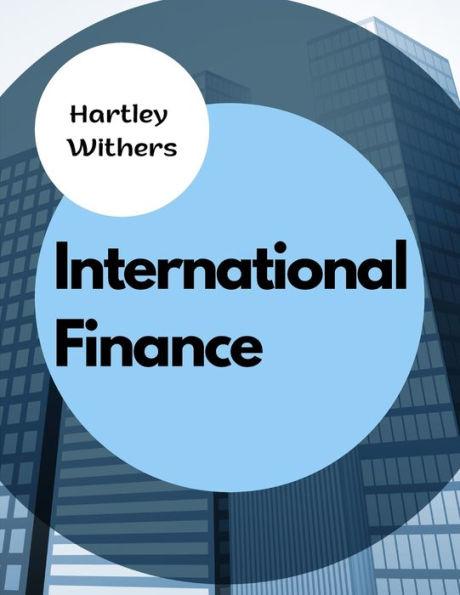International Finance: The Meanings, Differences and Relationships Between Money, Wealth, Finance, and Capital

International Finance: The Meanings, Differences and Relationships Between Money, Wealth, Finance, and Capital
Responsibility for the appearance of this book, but not for its contents, lies with the Council for the Study of International Relations, which asked me to write one "explaining what the City really does, why it is the centre of the world's Money Market".
In trying to do so, I had to go over a good deal of ground that I had covered in earlier efforts to throw light on the machinery of money and the Stock Exchange; and the task was done amid many distractions, for which readers must make as kindly allowance as they can.
Finance, in the sense in which it will be used in this book, means the machinery of money dealing. That is, the machinery by which money which you and I save is put together and lent out to people who want to borrow it. Finance becomes international when our money is lent to borrowers in other countries, or when people in England, who want to start an enterprise, get some or all of the money that they need, in order to do so, from lenders oversea.
The biggest borrowers of money, in most countries, are the Governments, and so international finance is largely concerned with lending by the citizens of one country to the Governments of others, for the purpose of developing their wealth, building railways and harbours or otherwise increasing their power to produce. Money thus saved and lent is capital. So finance is the machinery that handles capital, collects it from those who save it and lends it to those who want to use it and will pay a price for the loan of it.
This price is called the rate of interest, or profit. The borrower offers this price because he hopes to be able, after paying it, to benefit himself out of what he is going to make or grow or get with its help, or if it is a Government because it hopes to improve the country's wealth by its use.
Sometimes borrowers want money because they have been spending more than they have been getting, and try to tide over a difficulty by paying one set of creditors with the help of another, instead of cutting down their spending. This path, if followed far enough, leads to bankruptcy for the borrower and loss to the lender.
PRP: 92.94 Lei
Acesta este Pretul Recomandat de Producator. Pretul de vanzare al produsului este afisat mai jos.
83.65Lei
83.65Lei
92.94 LeiLivrare in 2-4 saptamani
Descrierea produsului
Responsibility for the appearance of this book, but not for its contents, lies with the Council for the Study of International Relations, which asked me to write one "explaining what the City really does, why it is the centre of the world's Money Market".
In trying to do so, I had to go over a good deal of ground that I had covered in earlier efforts to throw light on the machinery of money and the Stock Exchange; and the task was done amid many distractions, for which readers must make as kindly allowance as they can.
Finance, in the sense in which it will be used in this book, means the machinery of money dealing. That is, the machinery by which money which you and I save is put together and lent out to people who want to borrow it. Finance becomes international when our money is lent to borrowers in other countries, or when people in England, who want to start an enterprise, get some or all of the money that they need, in order to do so, from lenders oversea.
The biggest borrowers of money, in most countries, are the Governments, and so international finance is largely concerned with lending by the citizens of one country to the Governments of others, for the purpose of developing their wealth, building railways and harbours or otherwise increasing their power to produce. Money thus saved and lent is capital. So finance is the machinery that handles capital, collects it from those who save it and lends it to those who want to use it and will pay a price for the loan of it.
This price is called the rate of interest, or profit. The borrower offers this price because he hopes to be able, after paying it, to benefit himself out of what he is going to make or grow or get with its help, or if it is a Government because it hopes to improve the country's wealth by its use.
Sometimes borrowers want money because they have been spending more than they have been getting, and try to tide over a difficulty by paying one set of creditors with the help of another, instead of cutting down their spending. This path, if followed far enough, leads to bankruptcy for the borrower and loss to the lender.
Detaliile produsului








